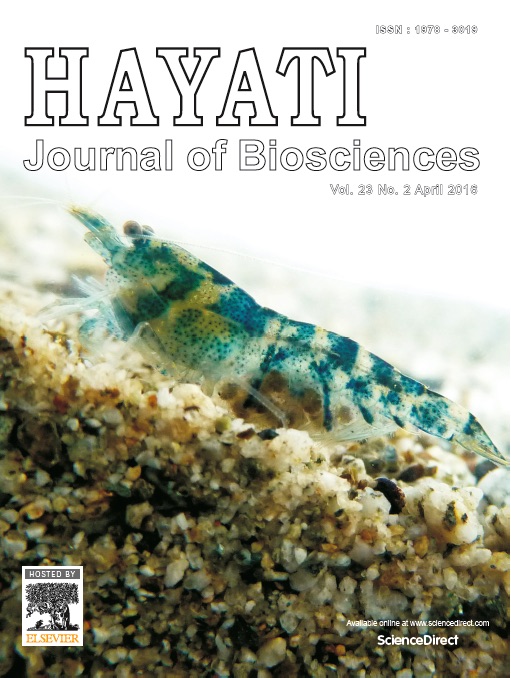The Effect of Mangiferin Against Brain Damage Caused by Oxidative Stress and Inflammation Induced by Doxorubicin
Abstract
Doxorubicin (DOX) is an anthracycline antibiotic used for anticancer therapy. However, this agent can cause various systemic side effects including cognitive impairments in chronic use. Brain damage due to DOX is caused by an increase of tumor necrosis factor-alpha (TNF-α) level in the brain. Increased TNF-α can further lead to chronic inflammation which can lead to neuronal deaths or neurodegenerative diseases. Mangiferin (MAG), a compound extracted from Mangifera indica, has been found neuroprotective activities, but its effect on DOX-induced brain damage is unknown. This study aims to determine the effect of MAG on brain damage induced by DOX. Male Sprague-Dawley rats were induced by DOX intraperitoneally. MAG was given orally at the doses of 30 and 60 mg/kg bw for 7 consecutive weeks. The parameters measured were inflammatory and oxidative stress markers in brain tissue. Coadministration of MAG with DOX reduced inflammation which was marked by the reduction of TNF-α mRNA expression, decreased TNF-α level and reduction of oxidative stress marked by increase of superoxide dismutase level and decrease of malondialdehyde level. In conclusion, MAG was shown to have a neuroprotective effect on brain damage induced by DOX, partly due to inhibition of inflammation and oxidative stress.Downloads
HAYATI J Biosci is an open access journal and the article's license is CC-BY-NC. This license lets others distribute, remix, tweak, and build upon author's work, as long as they credit the original creation. Authors retain copyright and grant the journal/publisher non exclusive publishing rights with the work simultaneously licensed under a https://creativecommons.org/

























.png) IPB University
IPB University Department of Biology
Department of Biology The Indonesian Biological Society
The Indonesian Biological Society 

